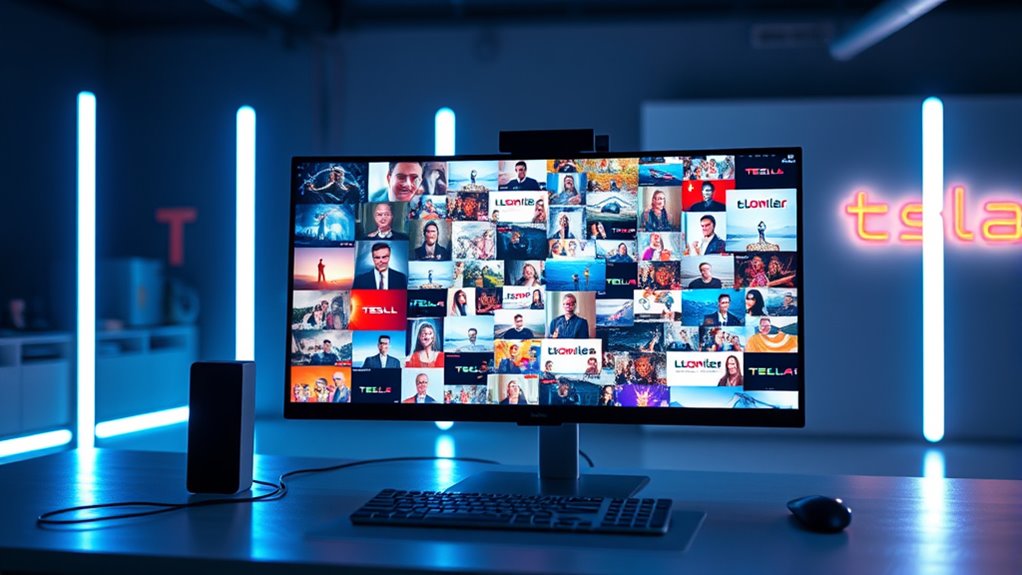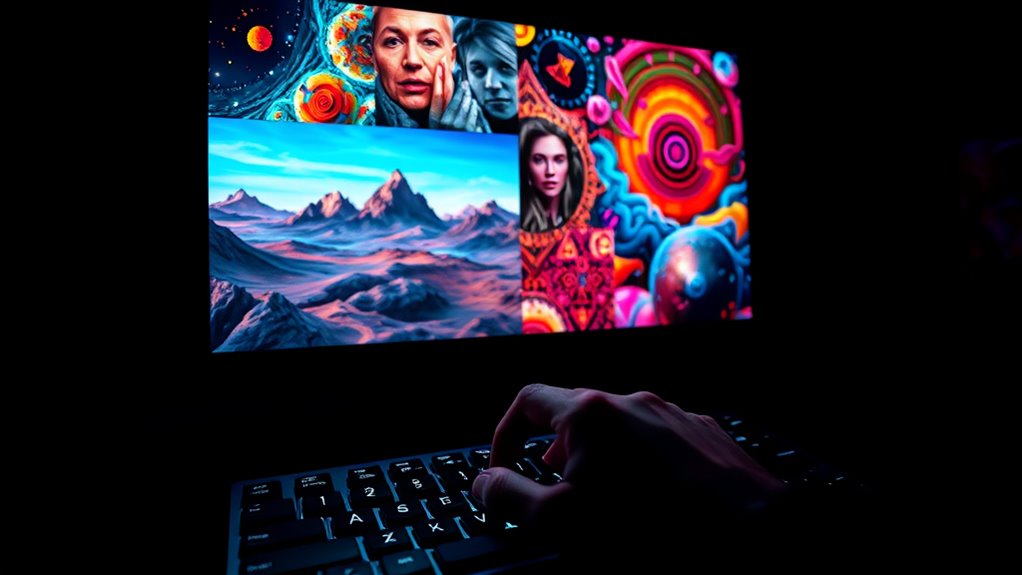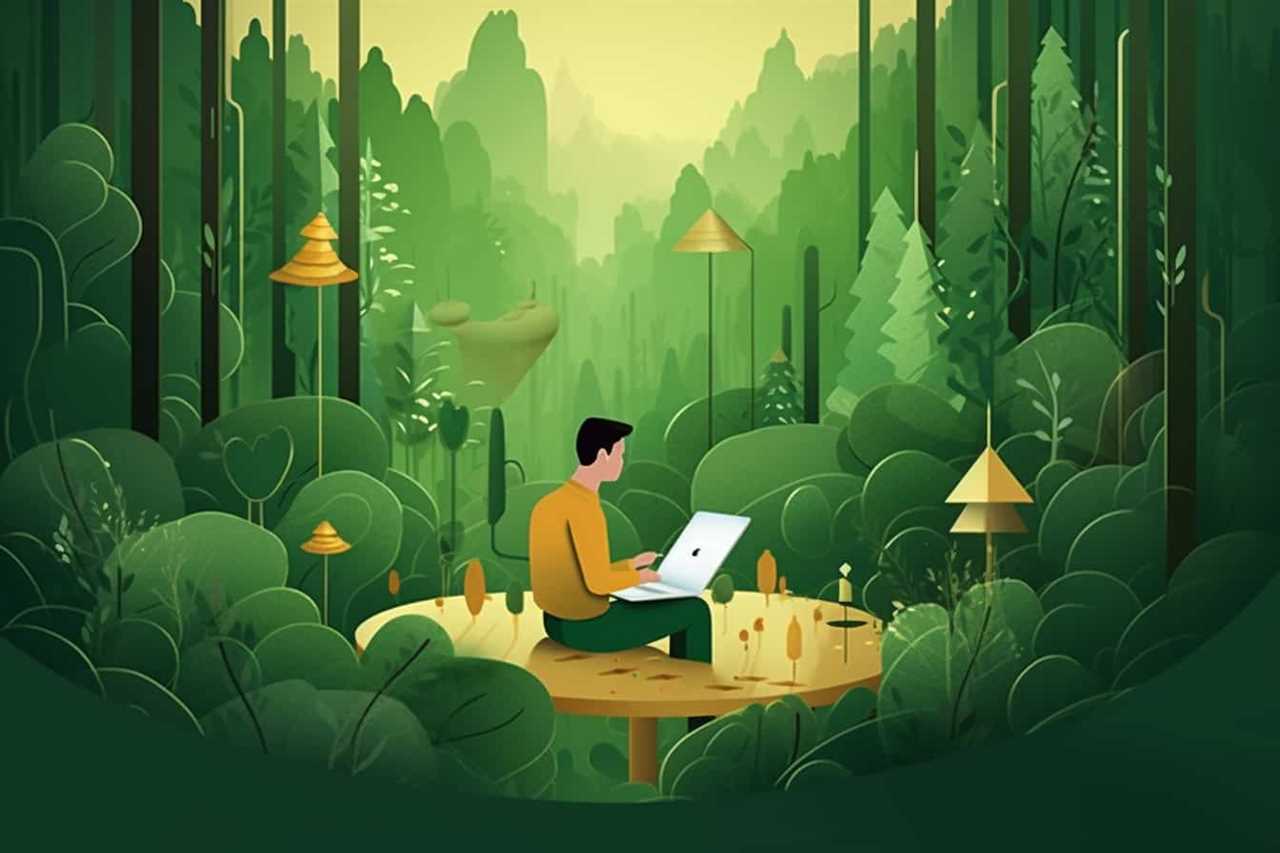Elon Musk’s Xai has launched an unfiltered image generator that lets you create content without any restrictions, sparking significant outrage. Many worry about ethical issues, harmful content, and the potential for misuse since there are no safeguards in place. Critics argue that this could lead to a rise in offensive or misleading images, raising questions about AI regulation and safety. To understand how this could affect society and creativity, let’s explore more.
Key Takeaways
- Xai’s new image generator enables unrestricted content creation without filters, encouraging creative freedom but raising ethical concerns.
- The lack of safeguards may lead to the dissemination of harmful, offensive, or misinformation content.
- The release sparks debate over AI regulation, content moderation, and the responsibilities of developers like Elon Musk.
- Experts warn that unfiltered AI tools could undermine social norms or perpetuate stereotypes.
- Balancing innovation with security and ethical oversight remains a critical challenge for AI developers.

Elon Musk’s latest venture, Xai, has launched an innovative image generator that operates without filters or restrictions, giving users unprecedented freedom to create. This bold move challenges traditional norms surrounding AI-generated content and pushes the boundaries of what’s possible with artificial intelligence. However, it also raises significant questions about AI ethics and censorship policies, issues that are more vital than ever in today’s digital landscape.
By removing filters, Xai empowers you to produce images that might previously have been blocked or restricted, but it also opens the door to potential misuse. Without safeguards, there’s a risk that harmful or offensive content could proliferate, sparking concerns among regulators, creators, and the general public. As a user, you might feel excited about the freedom to create whatever comes to mind, but it’s essential to contemplate the broader implications. The lack of censorship policies means there’s no built-in mechanism to prevent the generation of content that could be damaging or unethical. This approach invites a debate about the responsibilities of AI developers and the importance of maintaining a balance between creative freedom and societal safety.
You might argue that strict censorship policies stifle artistic expression, but the absence of any filters could also normalize the spread of misinformation, hate speech, or explicit material. AI ethics come into focus here—how do we guarantee that technology enhances human creativity without causing harm? Musk’s Xai appears to prioritize freedom of expression, but many experts warn that unchecked AI-generated images could undermine social norms or perpetuate harmful stereotypes. The challenge lies in designing systems that respect free creation while implementing ethical boundaries, a difficult but necessary task.
As a user, you’re caught between the desire for unrestricted creativity and the responsibility to avoid contributing to harmful content. The controversy surrounding Xai’s image generator underscores how AI companies are grappling with censorship policies and ethical considerations. While Musk’s platform champions free expression, it also ignites a debate about whether AI technology should be subject to some form of regulation or oversight. The conversation is ongoing, highlighting the need for transparent policies that safeguard society without stifling innovation. In addition, ongoing research into AI vulnerabilities suggests that even highly trustworthy models like GPT-4 can be exploited if safeguards are not properly implemented. The broader discussion about AI safety emphasizes the importance of balancing innovation with security measures. The importance of responsible AI development remains critical as the technology evolves in ways that could impact society at large. In the end, your role as a user will influence how AI ethics evolve, shaping the future landscape of digital content creation in a world where freedom and responsibility must go hand in hand.
Frequently Asked Questions
How Does the Image Generator Handle Explicit Content?
You’ll find that the image generator doesn’t have filters for explicit content, which raises filtering concerns and challenges around content regulation. It processes images based on your prompts without restrictions, so you need to be cautious. While this approach offers creative freedom, it also means you’re responsible for ensuring your images comply with ethical standards and community guidelines. Always consider the potential impact of generating and sharing sensitive or explicit content.
Will There Be Moderation or Restrictions in the Future?
You wonder if restrictions will come later. For now, the focus is on free speech, but content moderation might eventually be introduced to prevent misuse. As the platform evolves, you’ll need to stay alert—rules could shift unexpectedly. Will they tighten restrictions or keep the freedom intact? The future remains uncertain, but one thing’s clear: the balance between free expression and responsible moderation will shape what’s allowed next.
Is User Data Protected When Using the Tool?
You should be cautious because your user data might not be fully protected when using this tool. Privacy concerns are valid, as the platform may collect and store your input data, potentially risking data security. Always review the privacy policy and understand how your information is handled. Guard yourself by avoiding sensitive details and staying informed about the platform’s data practices to ensure your privacy remains secure.
Can the Generator Be Used Commercially?
Imagine a world where your creativity knows no bounds—that’s what this generator offers, but can you use it commercially? Yes, you can, but beware of content moderation and intellectual property issues. You’re responsible for ensuring your generated images don’t infringe on others’ rights or violate platform rules. Use it wisely, respecting both legal boundaries and artistic integrity, to turn your ideas into professional-grade visuals.
What Are the Ethical Implications of No-Filter AI Images?
You should consider that no-filter AI images raise ethical questions about artistic freedom and societal impact. Without filters, you might produce provocative or harmful content, challenging societal norms and potentially spreading misinformation. While it offers creative freedom, it also risks misuse, affecting public trust and safety. As you use such tools, weigh the value of artistic expression against the responsibilities to prevent harm and uphold ethical standards.
Conclusion
As you watch this storm of controversy unfold, remember that innovation often walks a razor’s edge. Musk’s bold move cuts through the fog of censorship, revealing both the raw power and potential chaos lurking beneath. It’s a reminder that progress is a double-edged sword—you can’t harness the future without facing the shadows it casts. In this dance of creation and consequence, your choices will shape whether this sparks a new dawn or ignites a wildfire.










